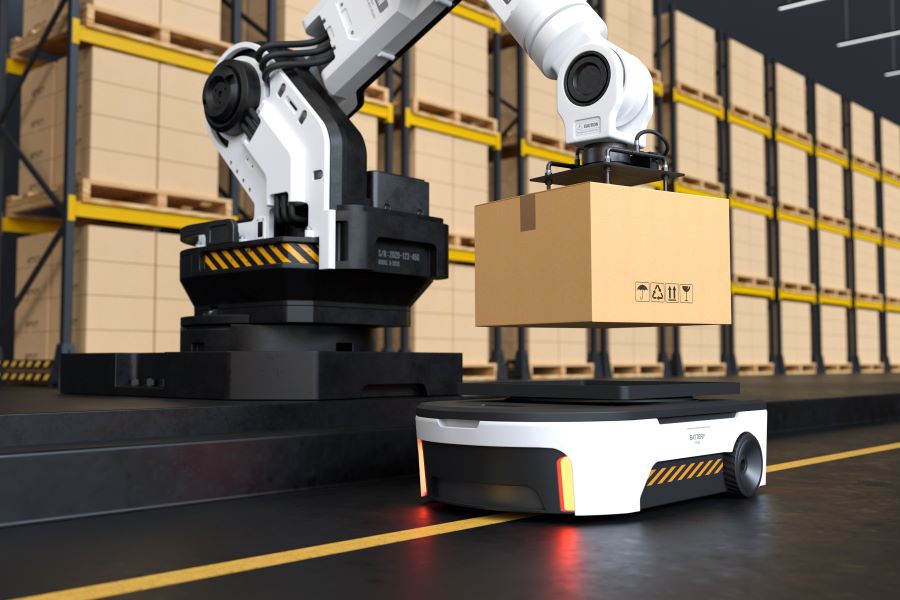Robot process automation, also known as RPA, is a field of technology that deals with the use of software robots to automate business processes. These software robots are designed to interact with the user interface of an application in the same way that a human would. The key benefits of RPA include its capability to carry out complex tasks automatically.
Robotic process automation has found applications in a variety of industries; businesses can reap several benefits from its adoption. Indeed, RPA has become an increasingly popular tool across many sectors, with businesses leveraging its versatility and efficacy to streamline and optimize tasks and processes.
For instance, the banking industry is using RPA for customer onboarding processes, fraud detection, loan processing, and more. In the retail sector, companies are utilizing RPA to automate order processing, inventory management, and in-store analytics. In healthcare, RPA is being used to streamline clinical processes such as patient scheduling and claims processing.
The adoption of RPA can bring about a multitude of benefits for businesses. In this article, we will discuss the definition of RPA, its applications, and the competitive advantages that businesses can expect to gain from its deployment.
How Does RPA Help Businesses Today?
Robotic automation can essentially help enterprises improve business productivity, reduce costs, improve employee capabilities, and provide innovative customer experiences. Here are some real-world applications of RPA in different industry sectors:
-
Financial and Banking Industry
RPA can help automate customer onboarding processes, loan origination, fraud detection, and compliance checks. This enables banks and financial institutions to streamline their services, reduce insurance costs, and improve customer experience.
-
Medical and Healthcare Industry
RPA can help automate tasks such as patient scheduling, claims processing, and medical records maintenance. Hospitals, clinics, and medical facilities get to optimize their administrative workflow and enhance the overall patient experience through RPA.
-
Telecommunications Industry
RPA can help automate a variety of network operations, such as provisioning new lines, troubleshooting connectivity issues, and performing network maintenance. This allows telecom companies to reduce maintenance costs and provide overall better customer service.
-
Manufacturing Industry
RPA can help automate assembly line operations, such as material handling, quality assurance checks, and process optimization. This increases production efficiency and reduces labor costs.
For businesses in the manufacturing industry, the implementation of RPA such as cobots can potentially provide greater long-term ROI thanks to its scalability.
-
Tech and SaaS Industry
RPA can help automate IT operations such as software testing, system maintenance, and user account management. This helps to reduce the workload of IT staff and optimize resource allocation.
-
Hospitality Industry
RPA can help automate tasks such as room bookings, reservations, and customer support. Hotels, inns, and hospitality businesses can effectively reduce costs, manage staffing hours better, and improve guest experiences through RPA.
-
Retail Industry
RPA can help automate tasks such as order processing, inventory management, and in-store analytics. This empowers retail businesses to stay ahead of the competition by analyzing customer data for better decision-making. And in today’s online world, data analytics proves itself to be an increasingly critical element to success.
 Leverage the Benefits of RPA for Your Business
Leverage the Benefits of RPA for Your Business
With the successful transition to using automation technologies like RPA, your business can benefit through:
- Boost in productivity
- Higher efficiency rates
- Higher precision rates
- Enhanced data and system security
- More powerful analytics
- Better customer service
- Seamless integration
- Scalability opportunities
Boost in Productivity
RPA can help businesses automate tedious and labor-intensive tasks. This helps eliminate the need for manual processing, freeing up staff from mundane tasks so they would be able to focus on more important ones. As a result, this increases overall productivity and efficiency in the workplace.
Higher Efficiency Rates
Businesses that employ RPA technologies can benefit from an increase in efficiency rates due to the automation of processes. This helps businesses reduce time-consuming errors and unnecessary delays, allowing them to process more information in a shorter amount of time.
Higher Precision Rates
By automating tasks, businesses can benefit from an improved precision rate when processing data. As RPA is programmed to carry out specific instructions, it ensures the accuracy and consistency of data, resulting in fewer manual errors.
Enhanced Data and System Security
RPA can be programmed to run specific tasks, allowing businesses to better secure their systems. As RPA is more familiar with the system than humans are, it can recognize suspicious activities and respond accordingly. In addition, as RPA functions within a closed system, it lowers the risk of data leakage.
More Powerful Analytics
With RPA, businesses can monitor and analyze data much more efficiently. This helps to provide better insights into customer behavior which can be used for targeted marketing campaigns or product development.
Better Customer Service
By automating mundane tasks such as order processing, inventory management, and customer support, businesses can provide their customers with a better overall experience. This helps to improve customer satisfaction, resulting in higher customer retention rates.
Seamless Integration
Due to its flexibility and scalability, RPA enables a non-disruptive business solution to integrate with existing systems easily and quickly. This allows businesses to implement RPA without having to make major changes to their existing IT infrastructure.
Get Ready for Scalability Opportunities
RPA is designed to be scalable, allowing businesses to easily adjust their scales and structures depending on their needs. This ensures that businesses are always capable of handling a sudden increase in workloads with minimal effort and disruption.
By properly utilizing RPA technologies, businesses across different industry sectors can benefit from higher cost efficiency by raising productivity and efficiency while cutting costs. As automation technologies continue to evolve, organizations need to leverage these tools to remain competitive in the ever-changing digital landscape.
When working with TM Robot, our AI Cobot series provides businesses with an easy and efficient way to implement RPA along with their production and assembly lines. By harnessing this technology, businesses can benefit from higher precision rates while improving customer service and worker safety.
Our AI Cobot solutions can be seamlessly integrated with existing systems, allowing businesses to benefit from scalability opportunities without having to make major changes to their IT infrastructure.
Contact us and leverage the benefits of RPA for your business today with the AI Cobot series.

